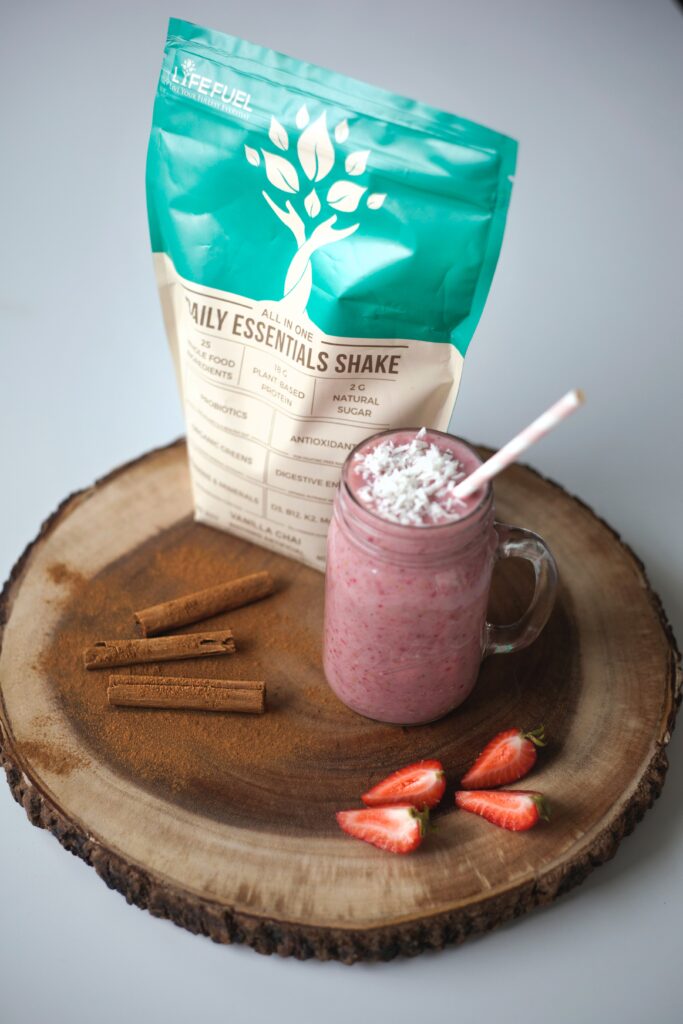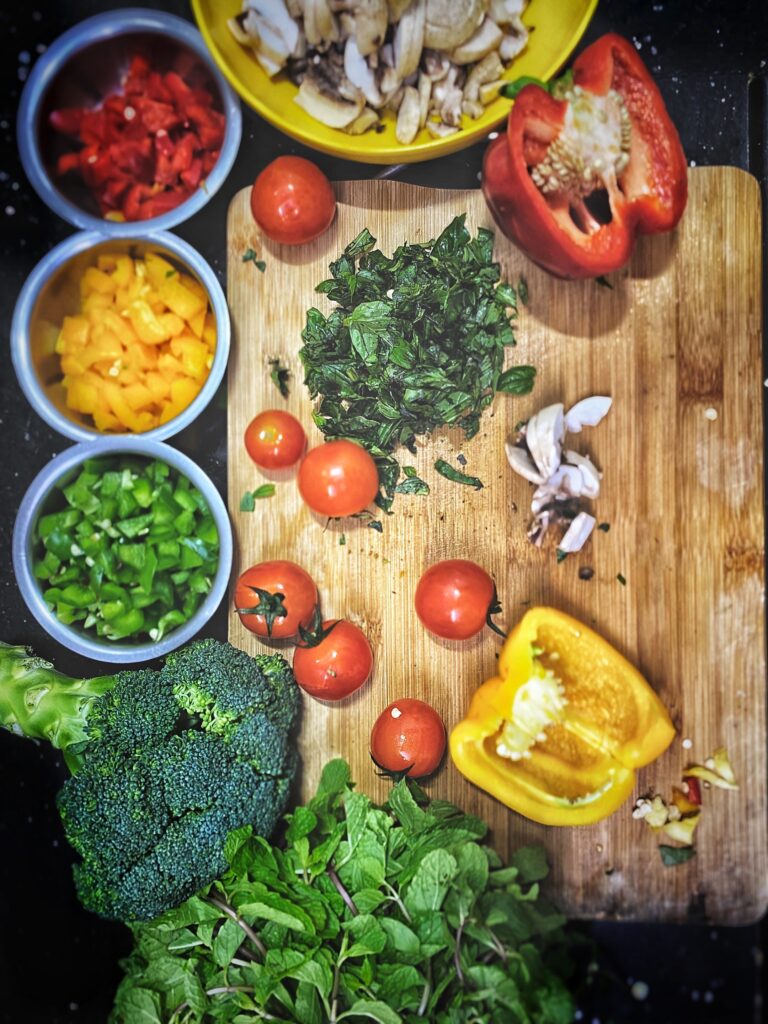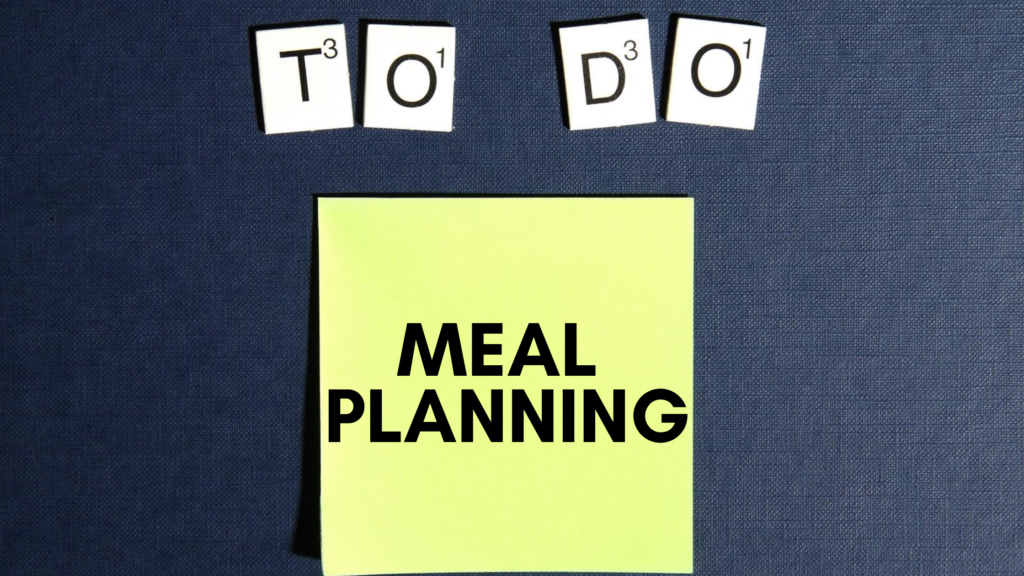Household chores can be overwhelming post-concussion, especially when it comes to making meals. If one of your symptoms is nausea, food doesn’t seem appealing. I don’t know how many times I’ve stood in front of the fridge and cupboards wondering what to make.
A key skill to retrain yourself with after your accident is organization. The more organized you are, the easier it is to function. It’ll help reduce overwhelm and teach you how to manage your day. This is also true for preparing meals.
It can be difficult when your doctor tells you to go on a specific diet or at least try to eat healthier post-concussion. You’d rather survive on protein shakes and Lunchables so you don’t have to think or make anything. Making food requires energy. Thinking about meals requires brain power. So, how do you survive the kitchen with these daunting tasks?

1) Plan out your meals
It’s okay to start with the basics if you need to. Thankfully it’s summer, so now’s a good time to stick to BBQ type meals. Find meals and ingredients that are easy to work with. For instance, you could have the same breakfast every morning for a week. You could have BBQ or crockpot dinners so there’s less prep for you.
If you can sit down and plan out your meals for the week in one sitting, it’ll take the pressure off of you to have to think what to make on the spot every day. Remember though to keep it simple. I went through the recipe books and tried to pick easy meals and some that sounded really yummy. But if I had a really tired week, I wasn’t up to taking the time to make anything that took longer than ten-twenty minutes. So, remember that even if you’re having a good day when you make the list, that might not be the case on another day. Sticking to things like pre-roasted chicken, burgers, spaghetti, and roast at the beginning might be the way to go.
Sample food day: You could have eggs* and fruit for breakfast with a slice of toast, a pre-made salad with a pre-roasted chicken broken up on top for lunch, and BBQ chicken thighs* and a baked potato for dinner with some pre-cut veggies and dip. Your food budget might be a bit higher to begin, but your saving in other areas like entertainment right now, so that’s okay. Those are all healthy and quick choices to make.
(*remember to set a timer while cooking the eggs and chicken so you don’t forget to check them and they burn).
2) Grocery List You’ve conquered the meal planning. Go take a break. When you’ve regained a bit of energy, come back to the kitchen. Now you can make a grocery list. It won’t be so bad. Start with your breakfasts and write down all the ingredients you don’t have in the house to make it. Then go to your lunches, dinners, then snacks. This sounds like an annoying extra step, but trust me, it will be helpful. Rewrite the grocery list in order of the grocery store. Typically, it goes produce, breads, meat, dairy, dry goods, then pharmacy. If you write it in the order of the store, you won’t be walking back and forth in the store, forgetting items, or feeling completely overwhelmed. You’ll get in and out of the store that much faster.
3) Attempting the Grocery Store
If a family or friend can’t get your groceries, and you can’t handle ordering groceries online, the list you organized earlier will help you. Wear your sunglasses, ear plugs, and hang on to that grocery cart as much as you can. Follow your list and get in and out.
Since grocery shopping is so stimulating and exhausting, set this as your one task for the day. Unload your groceries and rest. Perhaps buy a dinner at the store that’s pre-made for you that day.
4) Meal Prepping
If you have some energy and you’re feeling ambitious enough, you can prep your meals ahead of time. Cut up your fruits and veggies. Make some marinades for the meat. If you need some meats precooked, do that now and then store them in the freezer. You can easily pull them out, defrost them, and add some veggies or sauce with them when you’re ready to eat it.

A couple days of planning, shopping, and prepping will have you set up for success for the next week or two. If sounds like a lot of work, but once you can get into the habit of it, it’ll flow smoothly. If you have family to help, that’s a huge added bonus. In the planning phase, call out ingredients and have your family check the cupboards, fridge, and freezer for the item. If you don’t have it, write it down. You could have each family member pick two meals for the week that they would like to have. Have a family member do the grocery shopping. Make an afternoon of the family helping to prep the meals. Team work is key. If they see you trying to make an effort, they’ll be encouraged to help.
For all the meal planners out there, what are some tips you’ve found to help?




